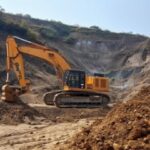Earlier this year, news broke that Insurance Australia Group (IAG) and its subsidiaries WFI and CGU would not renew landholder public liability insurance policies for properties on which there is coal seam gas or shale gas activities or infrastructure.
Landholders are still wondering how best to protect themselves.
Background
All prudent landholders rely on “public liability” insurance to cover risks of legal liability to others if something goes wrong on a farm leading to injury, death or damage to property of a third party.
The law recognises that there are circumstances in which a landholder is responsible, in full or in part, for such consequences. Insurance typically responds where the landholder has caused or contributed to the injury or damage but not done so deliberately or wilfully (in essence, as the result of an accident).
Where gas or mining activity or infrastructure occurs alongside a landholder’s grazing or farming activities, there will typically be an agreement between the landholder and the gas or mining company that satisfies a statutory pre-condition to access by the resource authority holder.
Under such an agreement, the gas or mining company usually assumes some of the risks associated with accidents involving its activities or infrastructure. From a landholder perspective, good agreements will shift all appropriate risks to the gas or mining company; bad agreements will leave significant risks resting with the landholder.
To the extent any risks are neither covered by the mining or gas company or insured under the landholder’s own insurance, there will be a gap that represents the landholder’s residual risk.
Obviously, a landholder’s residual risk is greatest where a landholder cannot obtain public liability insurance cover.
IAG is declining cover because it is not willing to cover the risk of a landholder being sued because of co-existence with resources activity or infrastructure. Other insurers might provide a policy but seek to exclude claims associated with resources activity or infrastructure. Either way, landholders are being left with significant residual risk.
Potential solutions
If a landholder’s current insurer will not renew a policy that provides a landholder with comprehensive public liability cover, the simplest solution might be for the landholder to look to other insurers. Particular attention though should be paid to the exclusions in any policy.
To achieve a competitive insurance market in the long run however, the structural issues behind IAG’s decision need to be addressed.
Put simply, if insurers will not take on a risk in exchange for the payment of a premium, then someone else needs to be asked to cover that risk.
The most obvious candidate is the mining or gas company, which in most cases has a statutory right of access to private land subject only to a requirement to compensate an affected landholder for actual losses (not risks).
Conceivably, insurers could be enticed back into the marketplace if mining and gas companies assume responsibility for claims associated with their activities and infrastructure, even where negligence on the landholder’s part causes or contributes to the personal injury, death or property damage the subject of the claim.
The challenge is, of course, for the resources industry to accept such responsibility or for the State government to impose such responsibility by strengthening the existing law.
Other issues
This topic cannot be discussed without mentioning that “public liability” (the potential liability of landholders to claims by third parties for personal injury, death or property damage) forms only one part of the spectrum of risks confronting a landholder when a mining or gas company knocks on the door.
A good agreement with a mining or gas company would also address the potential for the landholder itself to suffer loss or damage such as property, livestock or crop damage or loss of income. It would also address responsibility for damage to natural resources or the environment (such as pollution or contamination).
Next steps
It has been over six months since the problem arose. The onus is still on landholders to be more careful than ever to ensure the “indemnity” or “further claims” clauses in their agreements with mining and gas companies allocate risks appropriately.
Thynne + Macartney specialises in acting for landholders (not mining and gas companies) in negotiations about land access.





